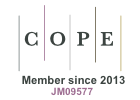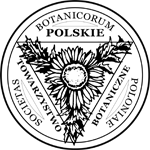Control of the root-rot and root-knot disease complex by Pseudomonas aeruginosa: impact of bacterial rhizosphere colonization
I. A. Siddiqui, S. Ehteshamul-Haque, S. S.. Shaukat
Abstract
The potential of 3 Pseudomonas aeriuginosa strains as biocontrol agents of rootinfecting fungi Macrophomina phaseolina, Fusarium solani and Rhizoctonia solani and the root-knot nematode Meloidogyne javanica was tested on chili and uridbean under greenhouse conditions. All the three strains significantly reduced nematode populations in soil, invasion, multiplication and gall formation due to M.javanica. Root infection by fungi was also effectively suppressed following P.aeruginosa application. Bacterial antagonists exhibited better biocontrol and growth promoting activity in 15-day-old plants than did those harvested at 30 or 45 days. Population of the bacterium in the rhizosphere declined rapidly after 15 days of nematode inoculation. Strain Pa-5 showed maximum nodulation in 15-day-old samplings while strain Pa-7 showed highest number of nodules in 30 and 45-day-old uridbean plants.
Keywords
Pseudomonas aeruginosa; root-knot nematode; root-infecting fungi; rhizosphere colonization
DOI:
https://doi.org/10.5586/aa.2001.005
Journal ISSN:- 2300-357X (online)
- 0065-0951 (print; ceased since 2016)
| | This is an Open Access journal, which distributes its content under the terms of the Creative Commons Attribution License, which permits redistribution, commercial and non-commercial, provided that the content is properly cited. | |
| | |






